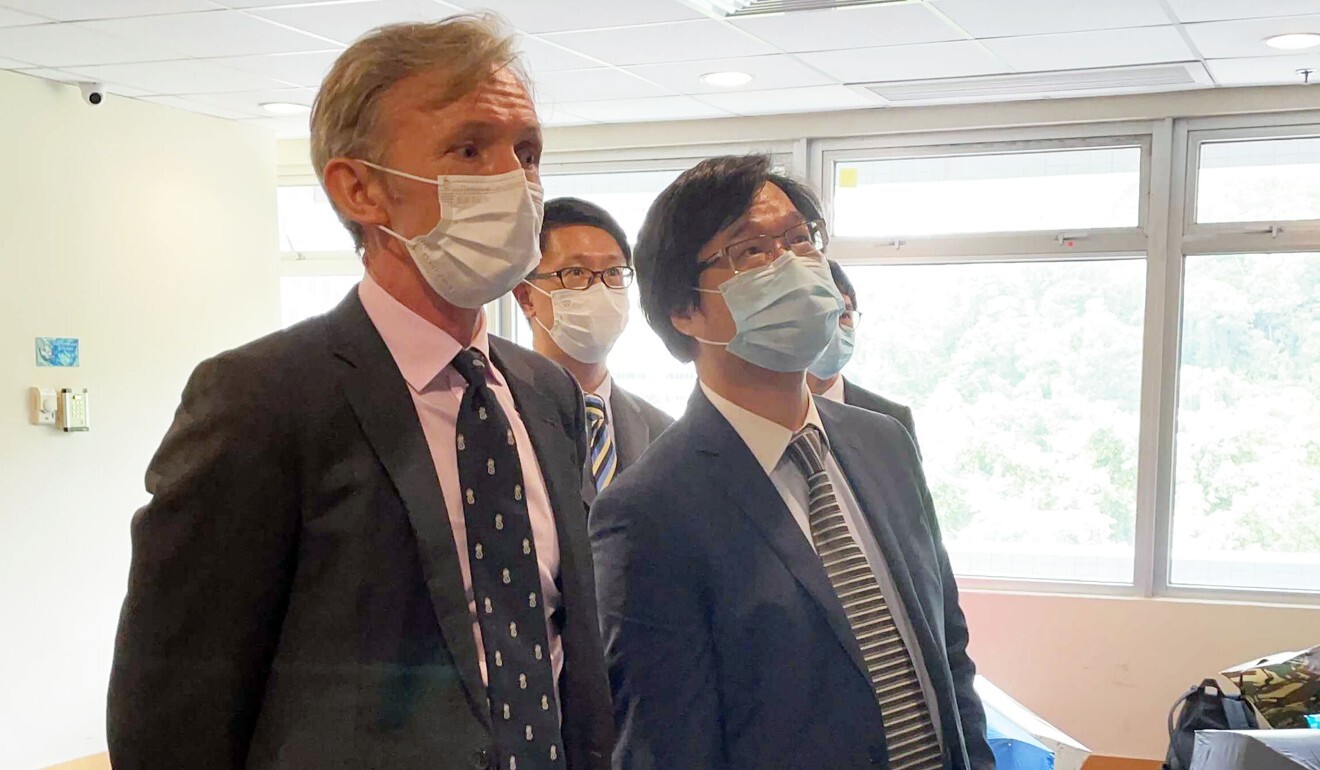
2 Hong Kong doctors get suspended sentences over failure to prescribe key drug to liver patient who later died
- Lam Chi-kwan and Chan Siu-kim of United Christian Hospital will remain listed as specialists for internal medicine and nephrology respectively
- Case centres on patient with underlying condition that was worsened by steroids
Two public hospital doctors in Hong Kong have been given suspended sentences after they were found guilty of professional misconduct for failing to prescribe an important antiviral drug to a liver patient who later died.
The Medical Council on Thursday spared the duo from immediate suspension of their licences, ruling that Lam Chi-kwan and Chan Siu-kim of United Christian Hospital be struck off the doctors’ general register for five months and three months respectively if they reoffended within a set time period.
Lam’s sentence was suspended for 36 months, while Chan got 18 months.

“We accept that the [defendant] has learned his lesson. However, the best clinical management system and/or protocol requires the vigilance of those who put them into practice,” chairwoman Grace Tang Wai-king said, reading from a disciplinary judgment passed on the fourth anniversary of the patient’s funeral.
“The primary purpose of a disciplinary order is not to punish … but to protect the public from persons who are unfit to practise medicine.”
Lam and Chan would also remain listed as specialists for internal medicine and nephrology respectively.
After admitting their mistakes, Lam and Chan were commended by the review panel for taking mitigation steps after the blunder, setting up an “alert system” for known hepatitis B carriers who were prescribed steroids.
The two doctors also reported they were working with pharmacists at the hospital to produce “patient education material” about the side effects of prolonged steroid treatment and the importance of antivirals.
Patients’ rights activist Tim Pang Hung-cheong slammed the outcome, claiming there was a lack of “objective and established principles” guiding the council’s final decision.
“We can understand the position of the public that this is too lenient to the doctors … There’s a lack of transparency to show that all relevant issues have been reflected in the sentences,” he said.
Pang added that the council did not address concerns that the two doctors might have attempted to cover up their mistakes.
The patient involved in the case, Tang Kwai-sze, 43, died in August 2017 of severe liver failure, after she was not given a crucial antiviral medication to suppress an underlying disease of the organ.
Tang initially sought help for symptoms of kidney disease, for which Lam prescribed a course of steroid medication when initial treatment proved unsuccessful.
In the 11-page verdict, panel members noted they were “particularly concerned” over Lam’s admission that he failed to prescribe a key anti-hepatitis B drug, even though he knew and had written down that Tang had an underlying liver condition that could be worsened by steroids.
Lam saw the patient a total of three times between August 2016 and January 2017, after which the patient consulted Chan once at the same hospital.
Chan failed to point out and remedy the lack of antiviral medication, allowing Tang to continue her course of steroids that compromised her immune system and contributed to her liver failure.
The complaint was initially lodged by Tang’s daughter, Michelle, who was 17 at the time her mother entered critical care.
Although the younger woman wanted to donate part of her own liver to save her mother, she was three months shy of the legal age of 18, an issue she took up with authorities as Tang’s chances of survival dwindled in early April 2017.
The teen appealed in vain to the Hospital Authority to exercise discretion to lower the age limit, sparking a debate over whether the requirement for organ donors should be relaxed.
Tang’s daughter then appealed on social media for help, prompting hundreds of people to sign up for organ donation, including a 26-year-old clerk, who gave two-thirds of her liver to Tang. But the attempt was unsuccessful, while the transplant of an entire liver from a deceased donor also failed. Tang died in August that year.

